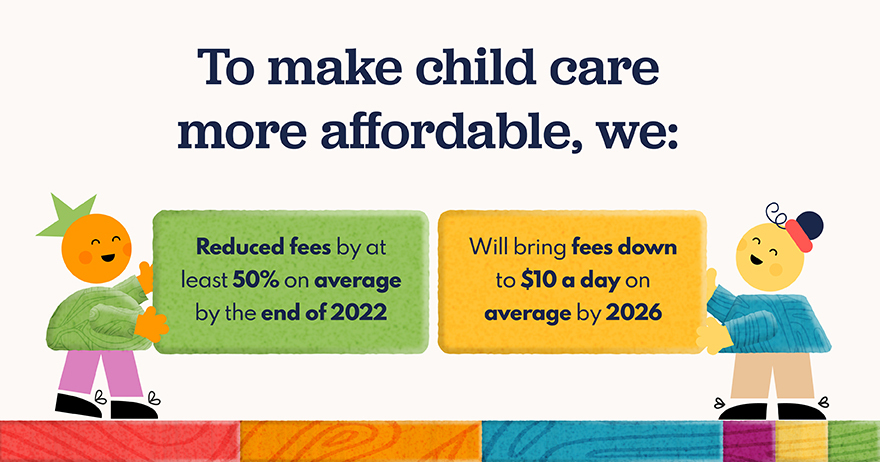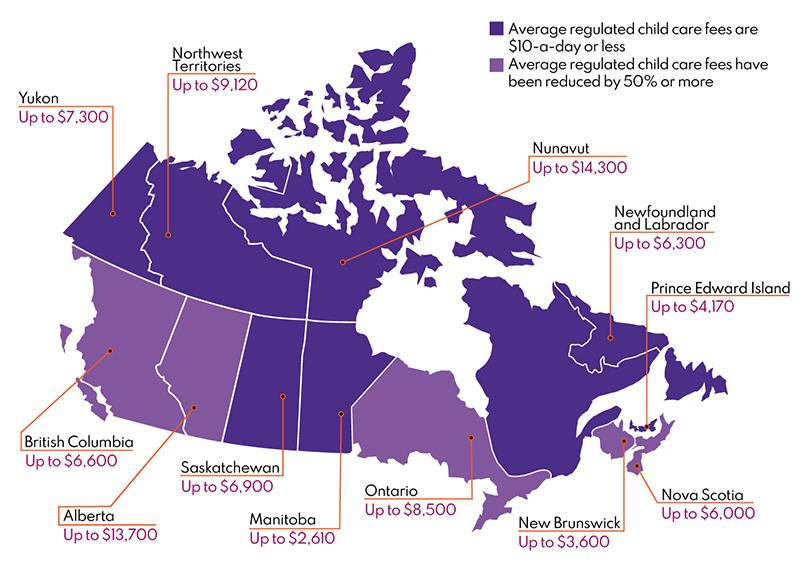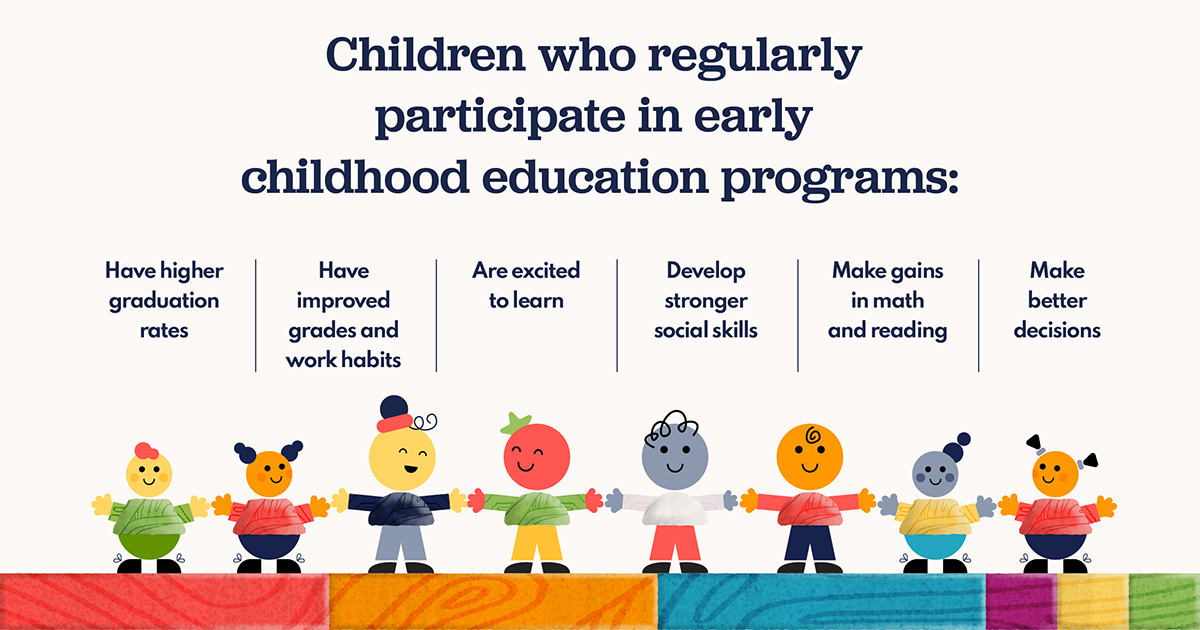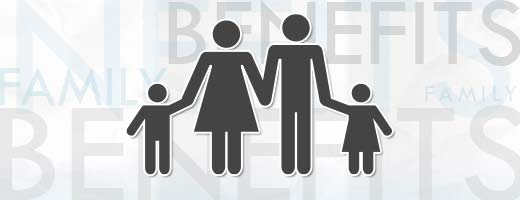Toward $10-a-day: Early Learning and Child Care
All families in Canada should have access to high-quality, affordable, flexible and inclusive early learning and child care no matter where they live. That is why we are building a Canada-wide Early Learning and Child Care system with provinces, territories and Indigenous partners.
Affordable care

Text description of figure 1
To make child care more affordable, we:
- reduced fees by at least 50% on average by the end of 2022
- will bring fees down to $10-a-day on average by the end of March 2026
These targets are applicable everywhere outside of Quebec, where an affordable, well-established early learning and child care system already exists.
We are working with provinces and territories to make meaningful progress towards a Canada-wide Early Learning and Child Care system that works for families.
Savings

Text description of figure 2
Provinces/territories with average fees of $10 a day or less for regulated child care: Newfoundland and Labrador, Prince Edward Island, Quebec, Manitoba, Saskatchewan, Nunavut and the Yukon.
Provinces/territories with average fee reductions of 50% or more for regulated child care: Nova Scotia, New Brunswick, Ontario, the Northwest Territories, Alberta and British Columbia.
Gross annual current savings for regulated/licensed child care per child under the Canada-wide early learning and child care system in:
- British Columbia: up to $6,600
- Alberta: up to $10,330Footnote 2
- Saskatchewan: up to $6,900Footnote 3
- Manitoba: up to $2,160
- Ontario: up to $8,500Footnote 4
- New Brunswick: up to $3,900
- Prince Edward Island: up to $4,170Footnote 5
- Nova Scotia: up to $6,000Footnote 6
- Newfoundland and Labrador: up to $6,300
- Yukon: up to $7,300 Yukon had achieved $10-a-day prior to the creation of the Canada-wide early learning and child care system
- Northwest Territories: up to $4,950
- Nunavut: up to $14,300
- Quebec achieved average fees of less than $10 a day prior to the creation of the Canada-wide early learning and child care system
Achievements
The Canada-wide Early Learning and Child Care system will provide families with access to high-quality, affordable, flexible and inclusive early learning and child care no matter where they live.
In less than a year, we reached Canada-Wide early learning and child care agreements with all 13 provinces and territories, including an asymmetrical agreement with the Government of Quebec.
Access to care
Through the 2017 to 2020 Multilateral Early Learning and Child Care agreements, we achieved our earlier target of creating up to 40,000 more affordable child care spaces across the country.
Through the Canada-wide Early Learning and Child Care agreements, we aim to create 250,000 new child care spaces across the country by March 2026 to give families more affordable child care options for their children.
Inclusivity will make sure every child, including children with disabilities, Indigenous children, and official language minorities, have access to affordable, high quality child care.
Our aim is to work to build a child care system that is community-based, designed from the start as inclusive. The goal is to give every Canadian child the best possible start in life.
Affordable care
More than half of all provinces and territories have $10-a-day on average (or less!) regulated child care. All others have reduced parent fees by 50% or more for regulated child care.
Benefits for families across Canada
High-quality, affordable, flexible and inclusive early learning and child care is important for the future of children. Access to child care also promotes greater gender equality by allowing more parents, particularly mothers, to participate in the workforce and achieve greater economic security. It also improves and grows the female-dominated early childhood educator workforce.
Affordable, high-quality child care will:
- grow our economy
- allow more women to enter the workforce
- help give every child in Canada the best start in life

Text description of figure 3: Benefits of early childhood educations programs
Children who regularly participate in early childhood education programs:
- have higher graduation rates
- have improved work habits and grades
- are excited about learning
- develop strong social skills
- make gains in reading and math
- make better decisions
Information hub
The Early Learning and Child Care Information Hub is an interactive tool that provides information on early learning and child care in Canada related to high quality care, accessibility, affordability, flexibility, and inclusivity. Indicators, data and research from a variety of sources are available to present information for stakeholders and Canadians.
Latest news
Related Links
Join the conversation
Features

Benefits to help with the costs of raising children, including children with disabilities. Employment Insurance benefits such as maternity, parental and caregiving benefits and leave.

Do you know an inspirational educator? Nominate them for a Prime Minister’s Award today!
Page details
- Date modified:
